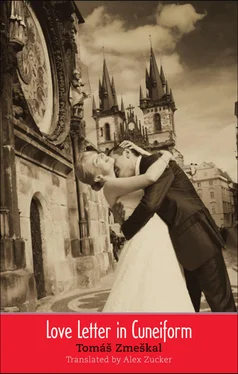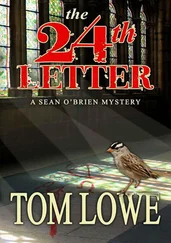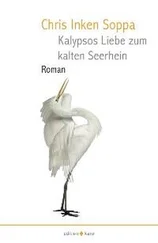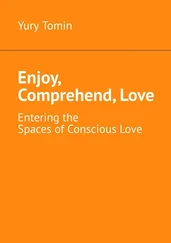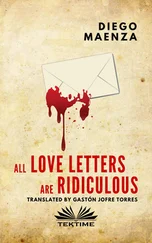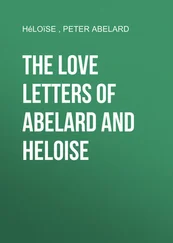“Who?”
“Josef.”
“What has he got to do with religion?”
“Not very much, but he did give me some advice back then.”
“The last time I talked to him he was old, incoherent, and didn’t look well.”
“Back then we were young. Josef was a different man. He had charm and sparkle, up until he went to prison, and then … then things changed him.”
“What advice did he give you?”
“Apart from his own work, he was also interested in logic in those days.”
“And?”
“And the combinations that he used to beat me at chess. He was a master of rook endings, but I suppose you know nothing about that?”
“No,” Jiří said, laughing. “I really don’t.”
“There was a beauty to his rook endings, a beauty with steel-blue logic. They were memorable defeats. My most beautiful.” Antonín paused. The conversations at the surrounding tables had died down, and outside, in the street, another downpour had begun.
“So what did he have to do with logic?”
“It was a hobby of his … and back then he gave me some advice, and he was right. He told me not to look at the problem from a personal perspective but from the standpoint of infinitary logic. Which even God trembles before, as he used to say.”
“So what was his advice?”
“He advised me to break the problem down into simple, logical steps. Like moves on a chessboard.”
“You can’t play chess with God. That’s true blasphemy.”
“I thought I would offend you sooner or later.”
“Explain!”
“One of God’s qualities is His infinite kindness, correct?”
“Of course, that goes without saying.”
“What Josef explained to me back then was that, theological loopholes and silly equivocations about the incomprehensible ways of God’s providence aside, there are only a certain number of possible alternatives.”
“And what alternatives are those?”
“Josef sketched it out for me something like this. The most important characteristics of God are: one, omnipotence; two, omniscience; three, omnipresence; and four, infinite kindness and love. I’m leaving out the less important ones, which even you Christians can’t agree on among yourselves. The question is, If infinite kindness is one of God’s attributes, how do you explain all the crap and misery in this world? Josef counted them all off on his fingers for me. One, the first alternative is your benevolent Catholic God doesn’t see, which is why He does nothing about it, but this contradicts your good Catholic belief in his omnipresence. Two, He isn’t capable of distinguishing good from bad, in which case maybe he should have stayed in paradise along with the bedbugs, the brontosaurs, and that snake, poor thing. This second alternative is ruled out, since your good Catholic God, in all his greatness, is omnipresent, and as we already noted, point four also applies, that is, infinite kindness and love. That means there’s nothing we can do about it, since as you pointed out to me, God is also all-powerful. The third alternative is that there is a God: He exists, sees everything, is omnipotent, and likes what He sees. In which case this omnipotent, omnipresent being can’t also be infinitely good. Otherwise it would do something about all the crap and such that goes on in the world. If anything does exist that is omnipotent and omnipresent, it can’t be God if it leaves everything the way it is. In which case that being, from a strictly logical point of view, has to be — the devil. The next-to-last alternative implies that this at least more or less possible, hypothetical Catholic God sees everything and doesn’t like it, but can’t do anything about it. Which would mean he’s in the same situation as both of us. The bottom line being, there’s a fifth alternative.”
“Which is?”
“He doesn’t exist.”
“Doesn’t exist?”
“That’s right.”
“But, but … that’s a cheap argument.”
“Cheap perhaps, but undeniably logical.”
“But surely you can’t reduce God to some shaky logical argument?”
“Whenever you ask about something truly basic, like how God created the universe or where God lives or is, people who believe always say you’re asking the wrong question and that your arguments aren’t deep enough. Even if I asked a simple question, like how come there aren’t any brontosaurs on Noah’s Ark in the Bible, they would all say I’m asking the wrong thing.”
“I’m not saying I know the answers, I’m just trying to ask.”
“Then you’re better off than most.”
There was the sound of a cat meowing from outside. The rain had stopped. The cat began meowing louder, only now it seemed to be coming from the kitchen. Antonín ordered two coffees and for himself a large cognac. He gave Jiří an apologetic look. “Fasting.” He lit a cigarette and sucked in the smoke, repeating the action several times. Inhale, exhale. Jiří shifted uncomfortably in his seat. He probably didn’t want to disturb Antonín. Again: inhale, exhale. After another moment or two, Antonín said:
“That cat meowing, I suppose that was from the river. At any rate let’s hope,” he added. “Let’s hope it isn’t in the kitchen.”
“It was probably attracted by the smell of fish.”
“Probably,” Antonín said.
“It wouldn’t be the only one.”
“Probably not,” said Antonín. Just then, there was a sound of shattering glass in the kitchen and the guests in the restaurant fell silent. The waiter at the bar flashed an embarrassed grin, uncertain whether to go see what happened or pretend everything was all right. After a moment or two, he decided not to go anywhere. There was the sound of quick steps from the kitchen and agitated voices.
“It must be like opium for cats,” Jiří said.
His companion stared out the window at the wet cobblestones on the street.
“What’s like opium for cats?” he asked.
“The fish.”
“Fish are like opium?”
“I’m saying for cats it’s like opium.”
“Uh-huh,” Antonín said. Along with most of the other guests, he was listening to the voices arguing in the kitchen. Another voice had joined in. The waiter had given up trying to pretend and was now listening with unconcealed interest. Suddenly a new sound erupted from the jumble, like a long, narrowly modulated meow.
“So it is in the kitchen.”
“What is?” Jiří asked.
“The cat,” Antonín said. “That doesn’t bode well for their hygienic practices.”
“Well, as I was saying,” Jiří said, “it’s like opium for them.”
The kitchen door flew open and two men, one in a T-shirt and corduroys, the other in a suit, burst into the dining room. The man in the T-shirt was shouting at the man in the suit. Meanwhile they were both trying to catch a bird that was zigzagging back and forth between them, meowing nonstop.
“It’s a peacock,” Antonín said, but before Jiří could reply, the peacock disappeared under a table at the other end of the dining room and the guests nervously sprang from their seats.
“You’re the one who wanted it for brains and tongue,” shouted the man in the suit.
“No, I didn’t. It just escaped from the castle and came over here.”
“The castle, right. I’ll give you the castle,” the man in the suit shouted, shaking his fist. “If you harm so much as a feather on him, not only are you gonna pay, but I’m gonna knock your teeth in.” Suddenly there was a squeal and the peacock shot out from under the table, through the legs of the guests and its pursuers. Whether guided by animal instinct or operating purely at random, it headed for the glass front door, which at that very moment a middle-aged man was opening for his female companion, who on seeing the bird sprang back with a startled shriek. The peacock let out a wail and dashed out into the streets of the Renaissance city. The man in the T-shirt glanced back at the woman as he ran out the door, shouting: “Are you stupid? You know how much that bird’s worth?” and went chasing after the peacock. The man in the suit paused to offer a grimace of apology, then joined in the chase, shouting at the man in the T-shirt: “It’s a coincidence, Mirek! Just a coincidence!” A group of guests at the two long tables in the corner of the restaurant applauded and belted out some sort of cry three times.
Читать дальше
